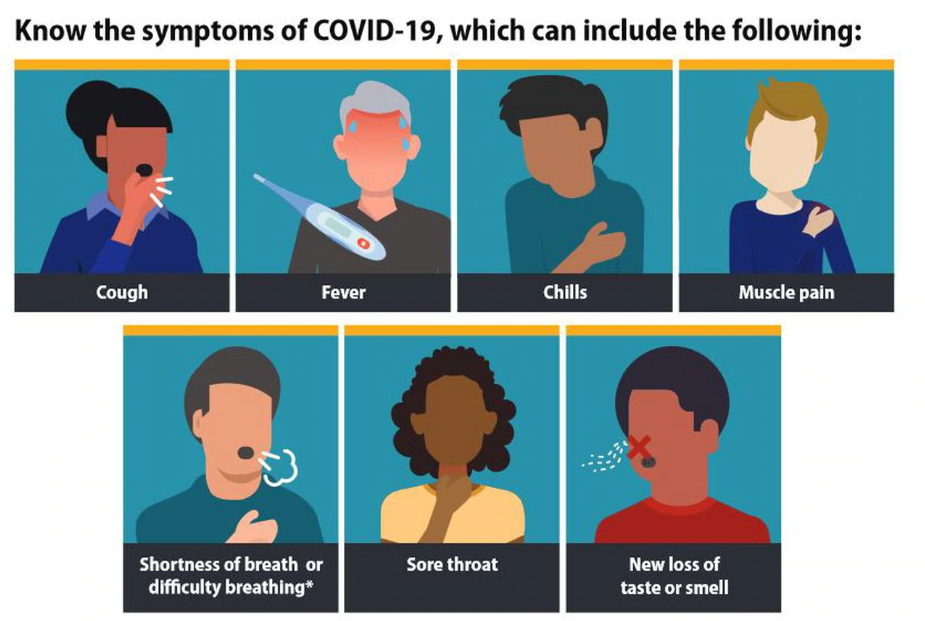Consider the Key Factors for Choosing a Heart Care Hospital


Cardiovascular diseases continue to be a leading cause of mortality worldwide, highlighting the importance of specialized cardiac care. As the prevalence of heart-related conditions rises, there is a growing need for dedicated facilities that focus on prevention, diagnosis, and treatment. Cardiac care or Pediatric Heart Surgery hospitals have emerged as beacons of hope, providing comprehensive and innovative care to individuals with heart ailments. Pediatric heart surgery plays a crucial role in improving the lives of young patients and fostering their overall well-being. In this article, we will explore the key aspects and components of a cardiac care hospital and its factors, shedding light on the features that make them exceptional in providing cardiac care services.
Contents
- How Does a Cardiac Care Hospital Create a Healing Environment?
- What Are the Advantages of a Collaborative Approach in Cardiac Care Hospitals With Multidisciplinary Teams?
- What Are Some Recent Advanced Treatment Modalities and Therapies Revolutionizing the Field of Medicine?
- Which Rehabilitation and Lifestyle Programs Boost Patient Outcomes and Facilitate Lasting Recovery?
- What Factors Are Crucial to Consider When Choosing a Cardiac Care Hospital, Given Its Significant Impact on Heart Health and Overall Well-being?
- Expertise and Experience:
- Accreditation and Quality Measures:
- Advanced Technology and Facilities:
- Range of Services:
- Collaborative Approach and Multidisciplinary Team:
- Reputation and Patient Reviews:
- Location and Accessibility:
- Insurance Coverage:
- Support Services:
- Patient Safety and Infection Control Measures:
- Conclusion:
How Does a Cardiac Care Hospital Create a Healing Environment?
A. Reception and Waiting Area
The reception and waiting area in a cardiac care hospital play a vital role increating a welcoming and comfortable environment for patients and their families. These spaces are designed with the intention of reducing anxiety and promoting a sense of calm. The use of soothing colors, comfortable seating, and informative displays can significantly contribute to a positive patient experience. Additionally, the integration of digital technologies for patient registration and seamless check-in processes streamlines the administrative aspects, allowing patients to focus on their health.
B. Specialized Cardiac Units
Emergency Department
Cardiac emergencies require immediate response and expert care. Cardiac care hospitals have dedicated emergency departments equipped with advanced equipment and trained staff capable of handling critical situations. Integration with nearby emergency medical services (EMS) ensures rapid patient transport, minimizing the time between symptom onset and treatment initiation.
Diagnostic and Imaging Center
Accurate and timely diagnosis is crucial for effective cardiac care. Cardiac care hospitals house state-of-the-art diagnostic and imaging centers equipped with advanced technologies. Echocardiography, cardiac MRI, and CT scans are just a few of the imaging modalities available. Collaborative efforts between cardiac specialists and radiologists ensure accurate diagnosis and aid in the formulation of personalized treatment plans.
Cardiac Catheterization Lab
Cardiac catheterization labs in cardiac care hospitals are cutting-edge facilities designed for both diagnostic and interventional procedures. These labs offer services such as cardiac catheterization, angioplasty, and stent placement. Collaboration with interventional cardiologists and cardiac surgeons allows for seamless care and ensures that patients receive the most appropriate interventions.
Cardiac Intensive Care Unit (CICU)
Critically ill cardiac patients require specialized care and constant monitoring. Cardiac care hospitals have dedicated Cardiac Intensive Care Units (CICUs) staffed with experienced professionals. These units are equipped with advanced monitoring systems and life support equipment to provide round-the-clock care for patients in critical condition.
What Are the Advantages of a Collaborative Approach in Cardiac Care Hospitals With Multidisciplinary Teams?
Cardiac care hospitals emphasize a collaborative approach to patient care. A multidisciplinary team consisting of cardiologists, cardiac surgeons, cardiac nurses, anesthesiologists, and rehabilitation specialists works together to provide comprehensive care. Coordination between different departments ensures streamlined patient care and treatment plans. Regular case conferences and multidisciplinary rounds facilitate the discussion of complex cases, enabling the formulation of comprehensive treatment strategies.
What Are Some Recent Advanced Treatment Modalities and Therapies Revolutionizing the Field of Medicine?
A. Minimally Invasive Procedures:
Cardiac care hospitals embrace the use of minimally invasive procedures whenever appropriate. Techniques such as transcatheter valve replacements and percutaneous coronary interventions offer several advantages over traditional open-heart surgeries. Minimally invasive procedures result in faster recovery times, reduced complications, and improved patient outcomes.
B. Surgical Interventions:
In cases where surgical intervention is necessary, cardiac care hospitals excel in providing a range of cardiac surgeries. Procedures like coronary artery bypass grafting (CABG) and heart valve repair/replacement are performed using advanced surgical techniques. Robotic-assisted surgery further enhances precision and improves patient outcomes.
One of the major
C. Electrophysiology and Arrhythmia Management:
Cardiac arrhythmias pose a significant threat to heart health. Cardiac care hospitals specialize in the diagnosis and treatment of arrhythmias through electrophysiology studies, ablation procedures, and the implantation of devices like pacemakers and defibrillators. These interventions help restore normal heart rhythm and prevent life-threatening events.
Which Rehabilitation and Lifestyle Programs Boost Patient Outcomes and Facilitate Lasting Recovery?
Cardiac care hospitals recognize the importance of holistic care and long-term cardiovascular wellness. They offer comprehensive rehabilitation programs that promote recovery and improve heart health. These programs incorporate exercise regimens, nutrition counseling, and psychological support to address the physical and emotional aspects of cardiac rehabilitation. Patient education and lifestyle modifications are emphasized to empower individuals in taking control of their heart health.
What Factors Are Crucial to Consider When Choosing a Cardiac Care Hospital, Given Its Significant Impact on Heart Health and Overall Well-being?
Expertise and Experience:
Look for hospitals that have a strong reputation and track record in cardiac care. Consider the expertise and experience of the medical staff, including cardiologists, cardiac surgeons, and other specialists. Research their credentials, training, and experience in treating specific cardiac conditions.
Accreditation and Quality Measures:
Check if the hospital is accredited by recognized organizations such as The Joint Commission or the American Heart Association. Accreditation ensures that the hospital meets certain quality and safety standards. Additionally, review the hospital’s quality measures, including patient outcomes, mortality rates, and complication rates for cardiac procedures.
Advanced Technology and Facilities:
Cardiac care hospitals should have state-of-the-art equipment, technology, and facilities to provide comprehensive and advanced cardiac care. This includes advanced imaging technologies, cardiac catheterization labs, electrophysiology labs, and operating rooms equipped for cardiac surgeries. Access to advanced diagnostic tools and treatment options is crucial for accurate diagnoses and effective interventions.
Range of Services:
Consider the range of cardiac services offered by the hospital. Look for hospitals that provide a comprehensive range of diagnostic, interventional, and surgical procedures for various cardiac conditions. This includes services such as angioplasty, bypass surgery, valve replacement, electrophysiology studies, and cardiac rehabilitation.
Collaborative Approach and Multidisciplinary Team:
Cardiac care involves a multidisciplinary approach. Ensure that the hospital has a collaborative team consisting of cardiologists, cardiac surgeons, nurses, rehabilitation specialists, and other healthcare professionals. A coordinated team approach promotes comprehensive and personalized care for cardiac patients.
Reputation and Patient Reviews:
Research the hospital’s reputation in the community and read patient reviews and testimonials. Online platforms and patient forums can provide valuable insights into the hospital’s quality of care, patient experiences, and overall satisfaction.
Location and Accessibility:
Consider the location of the hospital, especially if you require ongoing cardiac care or follow-up appointments. Accessibility to the hospital, including transportation options, can also be a crucial factor in emergencies.
Insurance Coverage:
Check if the hospital accepts your insurance provider. Understanding the financial aspect and ensuring that your insurance coverage aligns with the hospital’s services can help minimize financial stress.
Support Services:
Cardiac care involves various support services such as cardiac rehabilitation programs, nutrition counseling, and psychological support. Assess if the hospital offers these services to help you in your recovery and long-term management of cardiac health.
Patient Safety and Infection Control Measures:
Consider the hospital’s commitment to patient safety and infection control. Look for hospitals that have robust protocols in place to prevent hospital-acquired infections and ensure patient safety during procedures and hospital stays.
Conclusion:
Specialized cardiac care hospitals have become crucial pillars in the fight against cardiovascular diseases. By providing a healing environment, integrating specialized units, fostering multidisciplinary collaboration, offering advanced treatment modalities, and emphasizing rehabilitation and lifestyle modification programs. Some specialized cardiac care hospitals in Pune are providing exceptional care for the heart. As individuals, it is vital to be proactive in seeking appropriate cardiac care and promoting heart health. Together, we can build a healthier future for our hearts.









